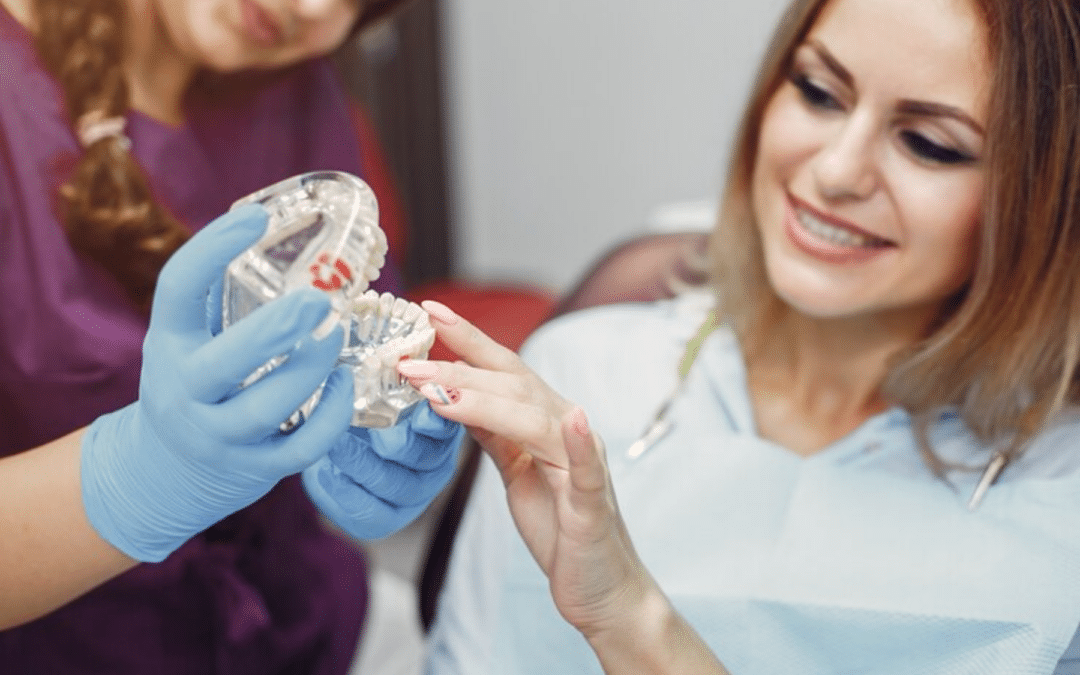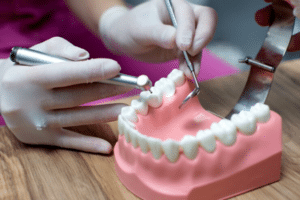For decades, dental crowns have been a go-to solution for restoring damaged or broken teeth. These tooth-shaped caps offer exceptional durability and functionality, allowing you to regain your confident smile. Traditionally, crowns were crafted from metal alloys, which are known for their strength. However, the tide is turning towards a more natural and holistic approach to dentistry. This shift has led to the rise of non-metal crowns, becoming increasingly popular among patients seeking a healthier, more aesthetically pleasing alternative. This blog delves into the world of metal-free crowns, exploring their advantages, the different types available, and how they align with the principles of holistic dentistry.
Holistic Dentistry: A Focus on Wellness
Holistic dentistry takes a whole-body approach to oral health. It acknowledges the interconnectedness of your mouth with your overall well-being. Holistic dentists prioritize biocompatible materials, minimizing the use of substances that might harm the body. Additionally, they focus on preventive care and natural remedies whenever possible. Non-metal crowns perfectly embody these core principles. Let’s explore why they are gaining traction in the realm of holistic dentistry.
The Advantages of Non-Metal Crowns
There are several compelling reasons why non-metal crowns are revolutionizing dental restorations:
Enhanced Aesthetics: Unlike traditional metal crowns, these metal-free crowns boast a natural, tooth-colored appearance that seamlessly blends with your surrounding teeth. This creates a more aesthetically pleasing restoration, boosting your confidence and smile.
Biocompatibility: Many people are concerned about potential health risks associated with metal in their bodies. These crowns are typically made from materials like porcelain, zirconia, or ceramic, which are biocompatible. This reduces the risk of allergic reactions or other health concerns some individuals might have with metal.
Preservation of Tooth Structure: Traditional metal crowns often require significant removal of healthy tooth structure to ensure a proper fit. Non-metal crowns, particularly those made from zirconia, are incredibly strong and can be crafted with minimal tooth reduction, preserving more of your natural tooth.
Gum Health: The dark metal line at the gumline with traditional crowns can trap plaque and bacteria. This can lead to gum inflammation and other issues. Metal-free crowns eliminate this issue, promoting healthier gums.
Durability and Longevity: Although these crowns might seem less robust than their metal counterparts, advancements in materials and technology have made them incredibly strong and durable. With proper care, they can last for many years.
Types of Non-Metal Crowns: Understanding Your Options
With the growing popularity of metal-free crowns, several material options are available to suit your specific needs and preferences. Here’s a breakdown of the most common types:
- Porcelain Crowns: These are the most widely used crowns, known for their natural appearance and ability to mimic the clarity of a natural tooth. They are a good choice for front teeth or areas where aesthetics are a priority.
- Zirconia Crowns: Incredibly strong and durable, zirconia crowns are an excellent option for back teeth that experience significant wear and tear. They offer a natural white color and are highly resistant to chipping or breaking.
- Lithium Disilicate Crowns: These crowns are a newer option that combines the aesthetics of porcelain with the strength of zirconia. They are a versatile choice suitable for both front and back teeth.
Are Non-Metal Crowns Right for You?
Metal-free crowns have become increasingly popular in dentistry due to their aesthetic appeal and biocompatibility. However, deciding if they’re the right choice for you requires careful consideration. Here’s a detailed breakdown of the factors to weigh:
- Appearance is a major concern: These crowns are known for their natural look, blending in seamlessly with surrounding teeth. This is because they are typically made from materials like porcelain or ceramic, which can be color-matched to your specific teeth.
- You have a metal allergy: If you have an allergy to metals commonly used in crowns, such as nickel or chromium, then non-metal crowns are the way to go.
- The damaged tooth is near the front of your mouth: Since metal-free crowns boast a more aesthetic look, they are preferable for teeth that are more visible when you smile or talk.
- The location and severity of the tooth damage: Non-metal crowns, while more durable than in the past, may not be the strongest option for molars that take the brunt of chewing.
- Your budget: Non-metal crowns tend to be more expensive than traditional metal crowns.
Non-metal crowns are gaining favor in holistic dentistry due to several key advantages. They offer a more natural appearance, potentially improved biocompatibility, and can minimize the need for tooth removal compared to traditional metal crowns. With advancements in materials and techniques, non-metal crowns are becoming increasingly durable and a viable long-term solution for restoring teeth. While traditional metal crowns may still have a place in certain situations, the growing preference for a more natural and potentially health-conscious approach to dentistry positions non-metal crowns as a strong contender for the new standard in holistic dental care.


